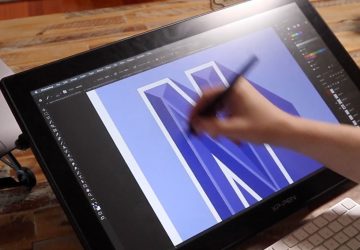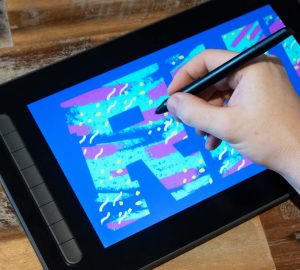Today, freelance is a popular way of working for designers. It is an aspiration to many due to the attractive way of life it offers. In contrast to full-time employment, freelance work can appear more flexible, provide more independence, more experience and a potential to earn more money.
If you’re at the stage where you’re asking yourself, “am I ready for freelance?”, you may be wondering just how much experience you need to freelance with design recruitment agenc. Some questions you may ask yourself are;
- Do I need a degree or any formal qualifications?
- What’s the minimum experience?
- Can a student go straight into freelance?
Now, I’ve been freelancing for over six years now with design recruitment agencies. Over the years, many aspiring designers have asked me these questions regarding design recruitment agency freelance.
And one of the most popular and probably one of the most important is:
Do I need a degree or any formal qualifications?
This is one of the most popular and probably one of the most important questions you’ll ask yourself. To answer this question more accurately I called up a few of my recruitment agencies and spoke to some creative recruiters to get their professional insights.
So, after speaking with a few agencies, it turns out that you don’t need a degree or any formal qualifications to go freelance with design recruitment agencies. The consensus on this one is that it’s all about your portfolio.
Now, this is because design recruitment agency freelance is heavily commercial. When it comes to clients or design studios seeking freelance designers from recruitment agencies, they just want a designer who is capable of getting the job done or joining their team.
The client or studio trusts the design recruitment agencies have already vetted their design roster. Therefore, they expect any recommended designers to be qualified for the job. When the design recruitment agency’s clients look at prospective designers, they consider your experience, but will be mainly looking at your portfolio. It really all comes down to the work you have produced that will inspire confidence in a potential contractor.
A client, company or studio will have a particular job in mind and will be looking at your potential to carry it out. They’ll look at the work you’ve done in the past and, if they can see you’re capable of carrying out their creative task, they’ll be happy to shortlist you for the job.
So you could have a degree with the highest qualification, but if your portfolio isn’t as commercial as perhaps someone without a degree, you won’t be shortlisted. Today, a degree does not guarantee you a job. If you have good work that is relevant and proves you are capable, then you can be shortlisted.
Bottom line; you get the job if you can prove you can do it.
What’s the minimum experience required?
So if a designer doesn’t need a degree, what’s the minimum experience required? Now, a CV may or may not appear to qualify you on paper, but it’s really all about the work you’ve produced that will inspire confidence in a potential contractor. It’s all about ability and demonstrating ability, and therefore it’s all about the portfolio.
I recommend you have a few solid projects in your portfolio to show your ability. Starting out, this could be around 3-5. Once you have a few solid projects in your portfolio that you feel demonstrate your ability, you can register with design recruitment agencies.
Once you begin the process, you’ll interview and receive honest and genuine feedback, which you can build on going forward.
Can a student go straight into freelance?
So after chatting to some recruitment agents, the consensus is that it’s recommended that a beginner designer find a full-time role. This helps them gain experience working in a team environment, working on briefs, taking direction and undertaking a creative process.
Clients and studios hiring contractors from design recruitment agencies have certain expectations. They expect freelancers to have adequate experience working in a commercial environment.
A freelancer needs to be able to work under pressure, swiftly and to a high standard, with commercial results. They will want a contractor to hit the ground running and not really be learning on the job.
Now a graduating student will likely have no prior experience working in a commercial environment, so it could prove challenging for them to jump straight into the deep end.
To recap
Now, these are the things you need to consider when deciding to go freelance initially. As you progress, your required experience will still be based on your portfolio, but it will start to vary for each project.
Do you feel like you have the experience to go freelance? Are you ready to take the leap? Let me know in the comments below.








